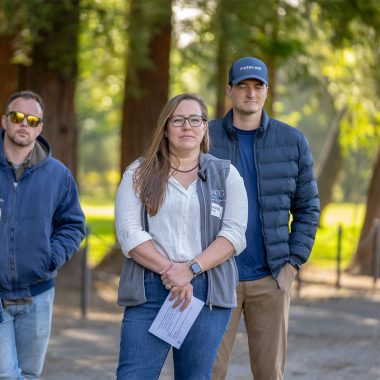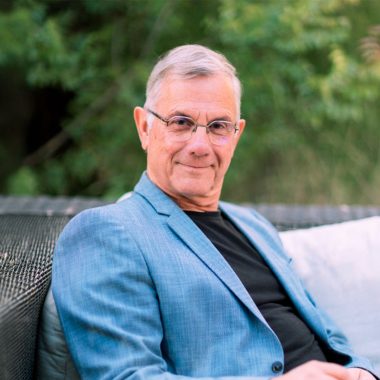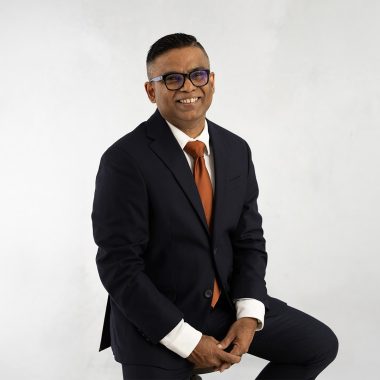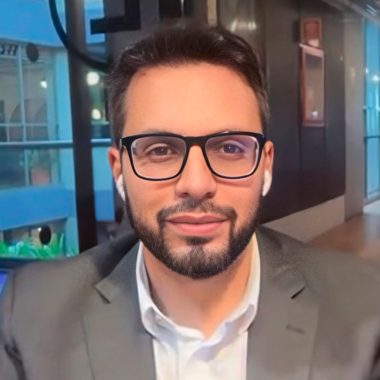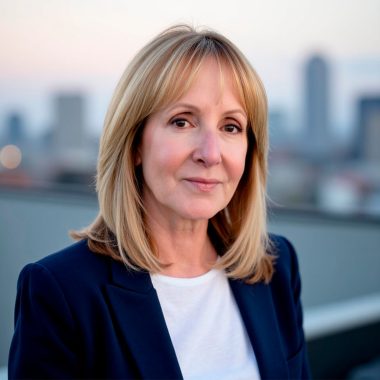Persistent structural challenges plague the UK’s care sector. In 2022/23, more than 152,000 vacancies left services strained, with vacancy rates approaching 10%. Local authorities spent around £23.7 billion on adult social care, yet funding remains below need — in real terms it was still £700 million lower in 2017/18 than in 2010/11, even as demand has continued to climb. Today, one in five adults reports unmet care needs.
In this pressured environment, Pauline V. Muswere-Enagbonma has emerged as a leader whose vision is shaped by lived experience. “I am a Black woman with albinism, a mother of seven children — six alive after the devastating loss of my daughter Jessamy to cot death — and a disabled leader navigating the health and social care sector,” she shares. As Chief Executive Officer and Co-Founder of Jessamy Staffing Solutions Ltd, she has spent more than five years building a values-led, high-performance organisation in one of the most scrutinised sectors in the United Kingdom. “Those experiences are not incidental. They are the foundation of what I call Legacy Leadership.”
When she co-founded Jessamy Staffing Solutions, Muswere-Enagbonma wasn’t looking to replicate traditional agency models. “We set out to redefine how care professionals are recruited, supported, and empowered,” she says. But early on she realised that staffing alone could not address the fractures within social care. “The answer was not growth by addition but growth by integration.” That philosophy led to the creation of a wider ecosystem of services, including:
- Jessamy Platinum Homecare, offering outreach and homecare for individuals with complex mental health needs.
- Jessamy Platinum Homes, providing transitional, respite, and children’s care environments.
- Lumina Pathways CIC, delivering supported housing and reinvesting surpluses back into communities.
- Jessamy Staffing Solutions Academy, a CPD-accredited training provider.
- JessamyCareOne, an AI-driven compliance and care management platform.
“Each element strengthens the other,” says Muswere-Enagbonma. “We are building systems that protect, not patchwork that fails.”
Innovation as the New Safeguard
One of the clearest examples of this ecosystem approach is JessamyCareOne, the company’s technology platform. Developed with academic partners, it integrates governance, safeguarding, workforce management, and housing oversight into a single system “Traditional approaches treat data, compliance, and training as disconnected silos,” she explains. “JessamyCareOne weaves them together not only to document care but to predict and prevent failures before they occur.” Already serving local authority pilots in the UK, the platform has plans to scale internationally. “Regulators demand accountability and commissioners want value. We are meeting both, but the real safeguard is for the vulnerable people at the centre of the system.”
Housing: The First Principle of Care
Beyond technology, Muswere-Enagbonma sees housing as the foundation of any sustainable care model. Through Lumina Pathways CIC, her team provides safe, supported tenancies and respite accommodation for people with learning disabilities, autism, and mental health needs. “Exempt accommodation — supported housing outside standard housing benefit rules — has often been controversial in the UK,” she says. “In some parts of the sector, it’s been misused by providers to exploit loopholes. We chose a different path. For us, transparency, compliance, and reinvestment into communities are non-negotiable. Housing is not an accessory to care, it is its cornerstone.”
Investing in Tomorrow’s Workforce Today
Another core pillar of her leadership is workforce development. Through the Jessamy Staffing Solutions Academy, Muswere-Enagbonma has designed accredited programmes that go beyond statutory requirements. “Tick-box training creates compliant workers. Transformational training creates resilient leaders,” she says. Her programmes emphasise governance, resilience, leadership, and emotional intelligence. “The workforce is the backbone of social care. If we fail to invest in them properly, every other reform becomes fragile.”
A Global Vision with Local Roots
While her initiatives are deeply embedded in the communities of Bolton, Warrington, St Helens, and Greater Manchester, Muswere-Enagbonma emphasises that the ambition is wider. “The models we are building are designed to be transferable. They can be replicated in Harare, in Lagos, or anywhere facing the same inequities in care,” she explains. “The challenges may differ in context, but the patterns are painfully familiar: fragmentation, under-resourcing, displacement, burnout. If the problems are global, so too must be the solutions.”
A Call to Action for Leaders
Workforce, housing, and innovation are the three pillars of a sustainable care system. Unless these elements are addressed in concert, reforms risk remaining fragmented and fragile. “The future of care will not be shaped by incremental fixes but by leaders bold enough to build ecosystems of protection, dignity, and opportunity. That is the vision we are pursuing, and it is a vision we cannot afford to ignore.”
For those interested in learning more about her work to reimagine social care, connect with Pauline V. Muswere-Enagbonma on LinkedIn.




